London 2012 'corrupted on unprecedented scale' by doping
Second part of McLaren report provides 'incontrovertible' proof of Russia's state-sponsored conspiracy
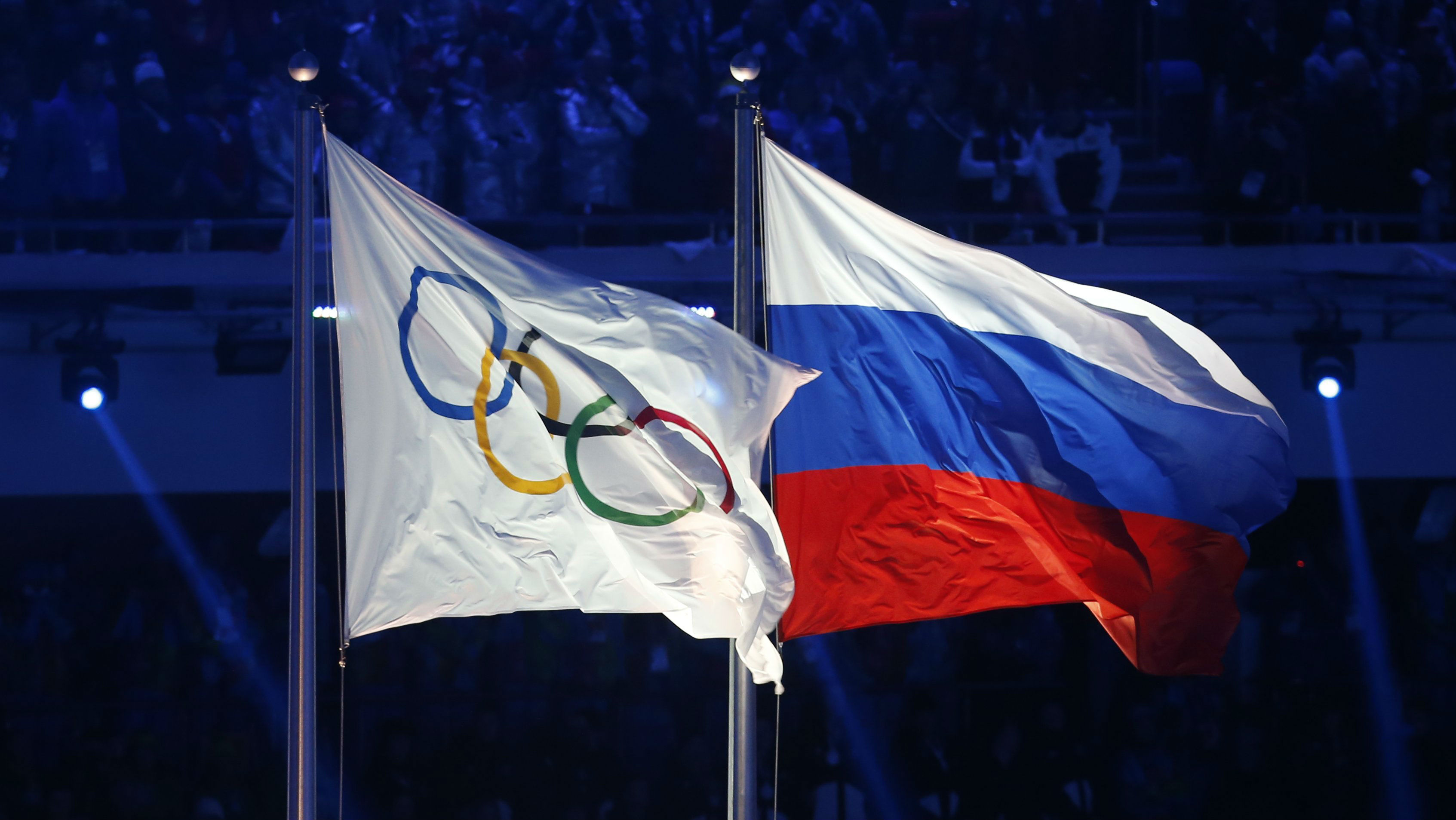
A free daily email with the biggest news stories of the day – and the best features from TheWeek.com
You are now subscribed
Your newsletter sign-up was successful
Russia doping scandal: Wada demands banishment from Olympics
19 July
A fresh report into Russian state-sponsored doping by the World Anti-Doping Agency (Wada) has prompted the organisation to demand that Russian competitors in all sports are barred from the Rio Olympics.
The McLaren Report, published yesterday, claims that Russia operated a state-sponsored doping programme through the buildup to the London 2012 Olympics, continuing through the 2014 Winter Olympics on home soil in Sochi.
The Week
Escape your echo chamber. Get the facts behind the news, plus analysis from multiple perspectives.

Sign up for The Week's Free Newsletters
From our morning news briefing to a weekly Good News Newsletter, get the best of The Week delivered directly to your inbox.
From our morning news briefing to a weekly Good News Newsletter, get the best of The Week delivered directly to your inbox.
The Russian track and field team has already been banned from the Games but the latest findings are "devastating and damning" for Russian sport, says Sean Ingle of The Guardian.
The new report confirms suspicions that Russian anti-doping and intelligence officials helped athletes fake clean drug test results, with unfavourable urine samples substituted for clean ones at the Sochi winter Games. It also found "beyond reasonable doubt" evidence of Russian anti-doping cover-ups in 22 of the 28 sports which will feature in next month's Games in Rio, with report author Richard McLaren stressing that the report - written in 57 days - showed “a slice of what is going on, not the total picture".
The IOC's executive board will now meet via conference call on Tuesday to decide on any provisional sanctions to be placed upon Russian athletes and administrators, but calls for the country to be banished are growing.
“As the international Agency - responsible for leading the collaborative, global, clean sport movement - Wada is calling on the sports movement to impose the strongest possible measures to protect clean sport for Rio 2016 and beyond," said Wada president Sir Craig Reedie in a statement.
A free daily email with the biggest news stories of the day – and the best features from TheWeek.com
The IOC must take heed, argues Andy Bull of the Guardian. "If Russian athletes are allowed to compete in Rio under their own flag the credibility gap that has afflicted the Olympics and its constituent sports for so long will grow impassibly large."
But it leaves the organisation with a huge problem just weeks before the start of the 2016 Games. As BBC sports editor Dan Roan noted in a tweet, the IOC is "facing arguably gravest crisis in its history".
New doping claims could mean complete Olympic ban for Russia
18 July
Russia faces a blanket ban from the Olympics with a new report into the nation's state-sponsored doping programme expected to show that cheating is even more widespread than previously thought.
The investigation, commissioned by the World Anti-Doping Agency (Wada), has examined claims made by whistleblower Grigory Rodchenkov, the former director of Moscow's Wada-accredited anti-doping laboratory, who says he "effectively sabotaged the 2014 Sochi Winter Olympics", reports the Daily Telegraph, "doping dozens of athletes, including at least 15 medallists, in the build-up to the event."
Rodchenkov, who has fled Russia and is now in the US, says he was "part of a government-orchestrated plot, with Russian security services helping him open and reseal supposedly tamper-proof doping sample containers before removing samples from his laboratory through a concealed hole in a wall at night".
Wada chairman Dick Pound has "warned that the findings could be more damning than the ones that led his Wada-appointed panel to recommend a ban for Russian track and field athletes", reports The Times.
And the International Olympic Committee is already under pressure. "Anti-doping officials from at least ten nations and 20 athlete groups are preparing the extraordinary step of requesting that the entire Russian delegation be barred from the Summer Olympics over allegations of a state-sponsored doping programme," reports the New York Times.
Among the countries calling for a complete ban are the US, Germany, Japan and Canada. "Russian officials have dismissed allegations of a state-run doping program as a Western conspiracy intended to smear Russia," says the NYT. "The country's track and field team has already been barred from the Rio Games for doping violations; calls for sanctions against Russian athletes in every sport would be unprecedented and would likely escalate the geopolitical debate."
Meanwhile, a film to be shown on Russian TV this week portrays "Russian athletes as victims of a political smear campaign", reports The Guardian.
"The film attempts to cast a shadow on the growing evidence of widespread doping in Russia. It opens with Ekaterina Poistogova, who won bronze in the 800 metres at the London Olympics, speaking through tears about how devastating her ongoing suspension has been, suggesting it contributed to her recent divorce."
In November, Wada recommended that Poistogova be banned for life after she reportedly admitted taking banned substances. In the Russian film, she is not asked directly whether she took performance-enhancing drugs.
Russia Olympic ban puts doping centre stage at Rio 2016
12 July
If the unprecedented ban on Russian athletes taking part in this year's Rio Olympics isn't overturned by a last-ditch appeal, the Games will go ahead without athletes from the country.
The extraordinary step to ban Russia was taken by the International Association of Athletics Federations after an expert taskforce ruled the country had not taken sufficient steps to overhaul its testing procedures and prove its athletes were clean. An independent report had revealed state-sponsored doping at the highest levels.
Last year's investigation commissioned by the World Anti-Doping Agency (Wada) claimed Russia had engaged in systematic cheating, that its athletes had "sabotaged" the London 2012 Olympics and that the state and security forces were involved.
Where does this leave Russia?
For their part, it seems the Russian Olympic Committee believe their athletes will still be taking part in Rio, and pole vaulter Yelena Isinbayeva (above), who won gold at the 2004 and 2008 Olympics, has called the ban "a human rights violation".
In what could be seen as an inflammatory move, Russia announced a 68-strong team for this summer's Games, despite being banned from international competition.
The All-Russian Athletics Federation has appealed to the Court of Arbitration for Sport about the "overall legality of adding extra criteria for the participation of sportsmen competing at the Olympics". A verdict is expected by 21 July.
There will be Russians at the Games however. Two track and field athletes, Darya Klishina and Yuliya Stepanova, have been given clearance to compete as neutrals after appealing to the IAAF. While other sports will be eligible to send competitors to Rio and more than 300 Russians will represent their country in disciplines from archery to wrestling,
But the country has faced widespread condemnation in the world's media. Russia's doping programme may have been about winning, but the response must be about taking part, says Martin Samuel in the Daily Mail. "If one Russian athlete so much as sets foot on the track at the Olympic Games... the sport is lost," he writes.
The "sheer sprawl" of the allegations makes it unique, he adds: "This takes in government bodies, maybe even government ministers, implicates them in the fixing of Olympic events and perhaps an entire Games. It is unprecedented; so what happens next must be unprecedented, too. Russian athletes must be banned from this Olympic Games, and beyond, until it is proven they are running clean."
Is it just Russia?
Not necessarily. Former Wada president Richard Pound said his report was just the "tip of the iceberg" and the problems were likely to extend to other countries and other sports.
He said it was "inconceivable" that Russian sports minister Vitaly Mutko was unaware of what was happening. Mutko is also head of Russia's 2018 football World Cup organising committee, reports The Guardian.
"Kenya and Turkey are two countries thought to be heavily investigated, with a high number of athletes banned because of failed doping tests," says The Independent.
However, the prospect of an Olympic ban for Kenya remains "slim", says the Guardian.
"The distinction with Russia is worth stressing," it adds. "The Russian Athletics Federation was suspended from international athletics after the country was found guilty of state-sponsored doping. In Kenya's case, Wada's intervention is about forcing the nation's government to provide the £3.5m needed to fund and staff the fledgling Anti-Doping Agency of Kenya.
Diplomatic fall-out
The scandal is also in danger of becoming about more than sport. Fifa president Sepp Blatter claimed his regime had become the target of Western self-interest and Russia could play a similar card.
So far Moscow's reaction has been to reject the findings. A spokesman for President Vladimir Putin called them "groundless".
"Another front in the new Cold War between Putin's mafia state and the West will doubtless be opened up by the detail of FSB (state security) agents appearing in Sochi laboratories and alleged bribes being paid to cover up positive Russian tests," writes Paul Hayward in the Daily Telegraph.
Russia's former triple jump world champion Yolanda Chen told the BBC News at Ten: "With everything happening to Russia now, all the sanctions and bad relations with the West, it's like this is just another link in the chain. If they pressurise us on one front and we don't bend then they start hitting us in our sorest spot – and that is sport."
IAAF scandal: pressure on Lord Coe after athletics doping report
15 January
The release of the second part of the World Anti-Doping Agency report on doping in athletics has ratcheted up the pressure on IAAF president Lord Coe.
The 89-page report by Dick Pound concludes that Coe, along with the rest of the governing body's top-ranking members, "could not have been unaware of" the flouting of anti-doping rules.
Pound damned the IAAF's governance of the sport and elaborated on accusations of Russia's continued and widespread doping practices.
The scandal has led to the expulsion of Russia from international athletics, and the arrest of key figures including former IAAF president Lamine Diack.
What does Dick Pound's report say?
The report says corruption at the IAAF was not down to one rogue member but was "embedded in the organisation". It urges the governing body to "accept its responsibility" and warns that "continued denial will simply make it more difficult to make genuine progress".
It also claims that senior figures at the "IAAF council could not have been unaware of the extent of doping in athletics and the non-enforcement of applicable anti-doping rules".
Who does it blame?
Disgraced fomer IAAF president Lamine Diack is firmly in the line of fire. According to the report, Diack sanctioned - and appears to have had personal knowledge of - the fraud and extortion of athletes that resulted from the "illegitimate governance structure" he put in place.
The report also says Coe's right-hand man, Nick Davies, who stepped down from his position as the association's chief of staff last month, was "
What does the future hold for Lord Coe?
Despite the report's criticism, Pound was effusive in his support of Lord Coe's leadership skills, saying he "can't think of anyone better to lead the IAAF" than Coe.
However, Coe's insistence that the IAAF wasn't complicit in the doping scandal has now been called into question. Whether he can hold onto the presidency will hinge on whether he can retain the confidence of the public and the athletics community.
"Lord Coe's reputation is on the line, especially with what he's been saying about Lamine Diack being the 'spiritual leader' of the sport," says BBC athletics correspondent, Mike Costello. "There has to be some guilt by association for Coe. Yet within athletics there is a feeling that if not Seb Coe then who else?"
What has Coe said?
After the report came out Coe apologised for his "clumsy" handling of the crisis and admitted that the IAAF was "a failed organisation".
"I'm sorry if my language has in any way demonstrated a sort of a lack of understanding about the depth of this," he added. "My responsibility is to absorb the lessons of the past and to shape the future. The changes I am making will do that. The road back to trust is going to be a long one."
-
 6 exquisite homes with vast acreage
6 exquisite homes with vast acreageFeature Featuring an off-the-grid contemporary home in New Mexico and lakefront farmhouse in Massachusetts
-
 Film reviews: ‘Wuthering Heights,’ ‘Good Luck, Have Fun, Don’t Die,’ and ‘Sirat’
Film reviews: ‘Wuthering Heights,’ ‘Good Luck, Have Fun, Don’t Die,’ and ‘Sirat’Feature An inconvenient love torments a would-be couple, a gonzo time traveler seeks to save humanity from AI, and a father’s desperate search goes deeply sideways
-
 Political cartoons for February 16
Political cartoons for February 16Cartoons Monday’s political cartoons include President's Day, a valentine from the Epstein files, and more
-
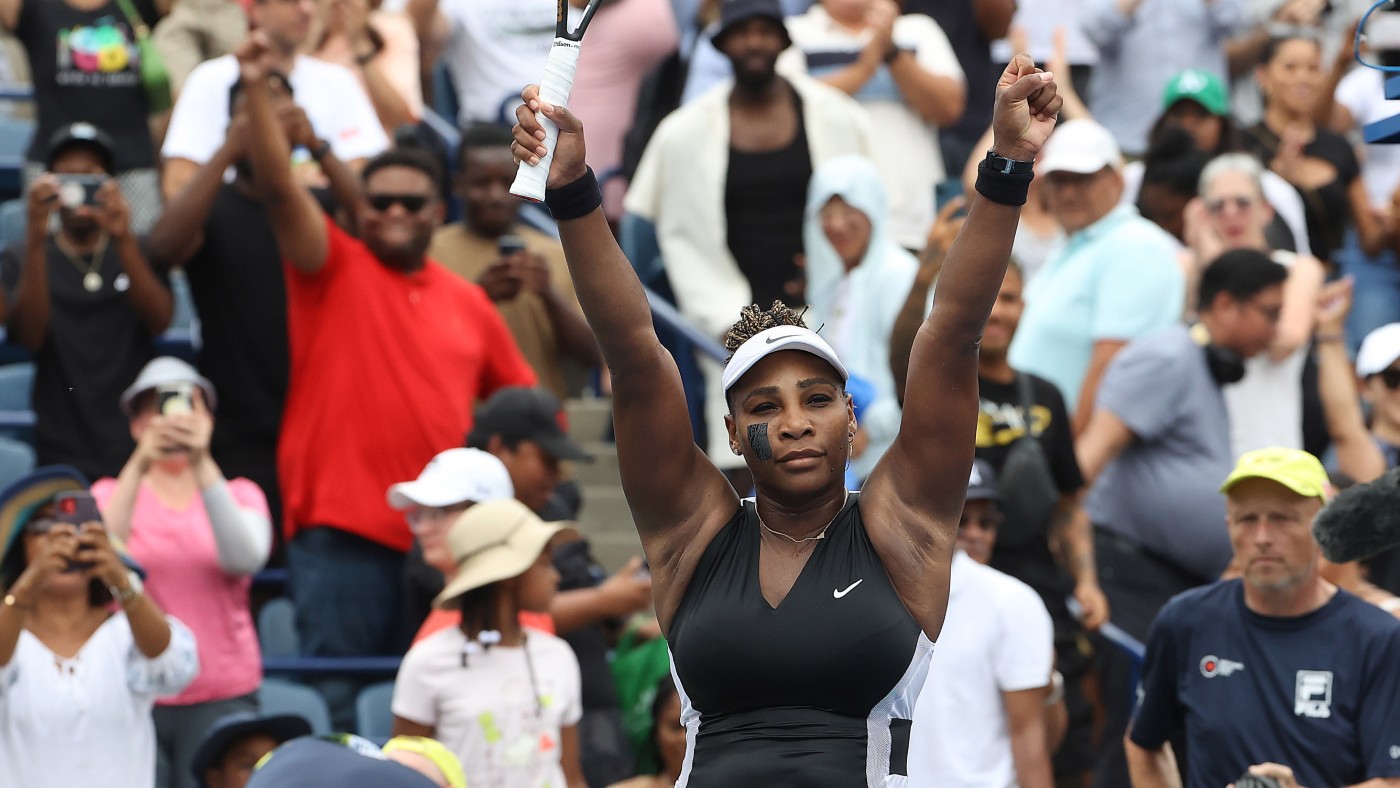 Serena Williams and her ‘evolution’ away from tennis
Serena Williams and her ‘evolution’ away from tennisIn the Spotlight The 23-time grand slam champion is set to retire after the US Open
-
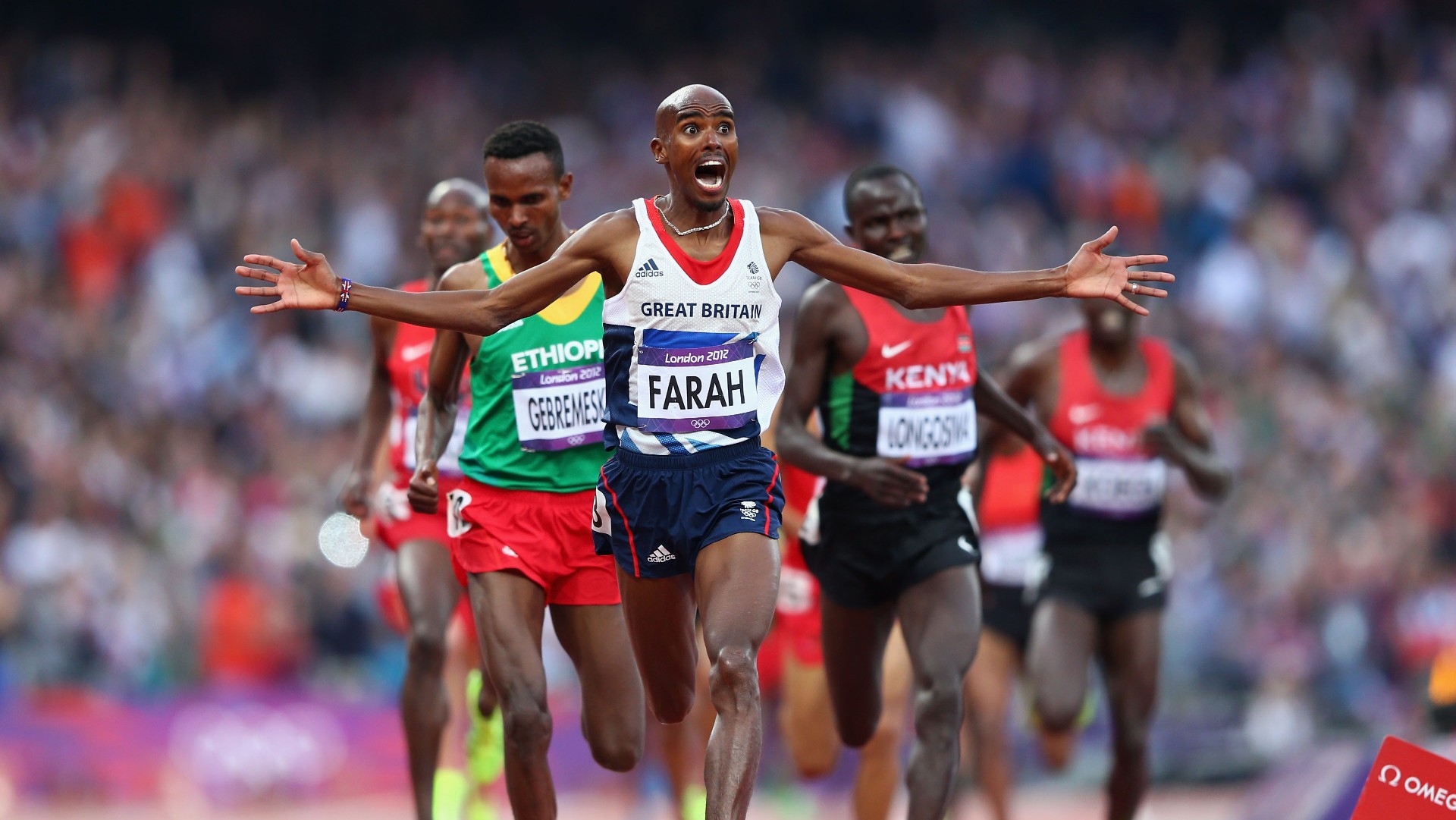 Mo Farah reveals ‘astonishing truth’ about his real name
Mo Farah reveals ‘astonishing truth’ about his real nameSpeed Read Olympic champion illegally trafficked to UK and forced into domestic servitude as a child
-
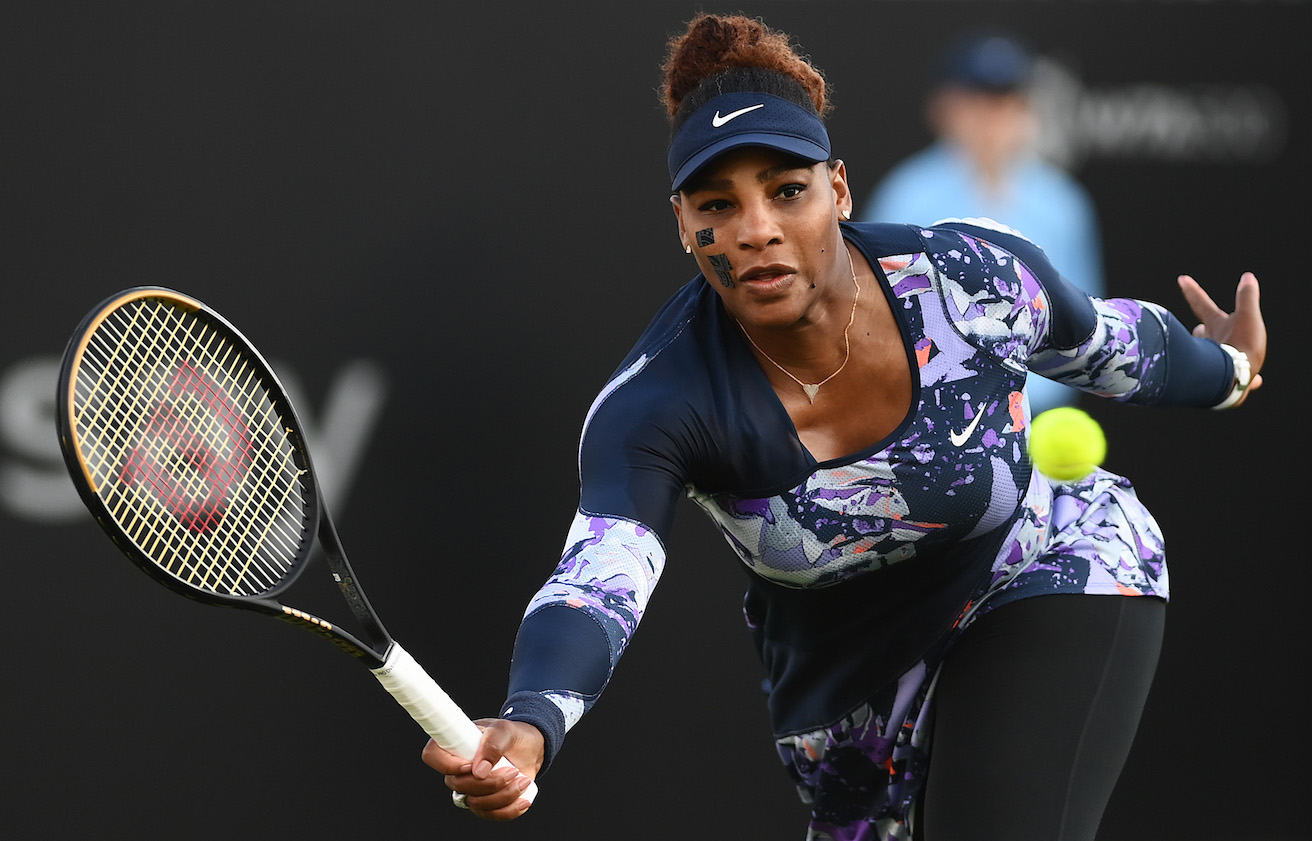 What has Serena Williams been doing?
What has Serena Williams been doing?In the Spotlight The tennis great made a surprise return to the court this week after a year away
-
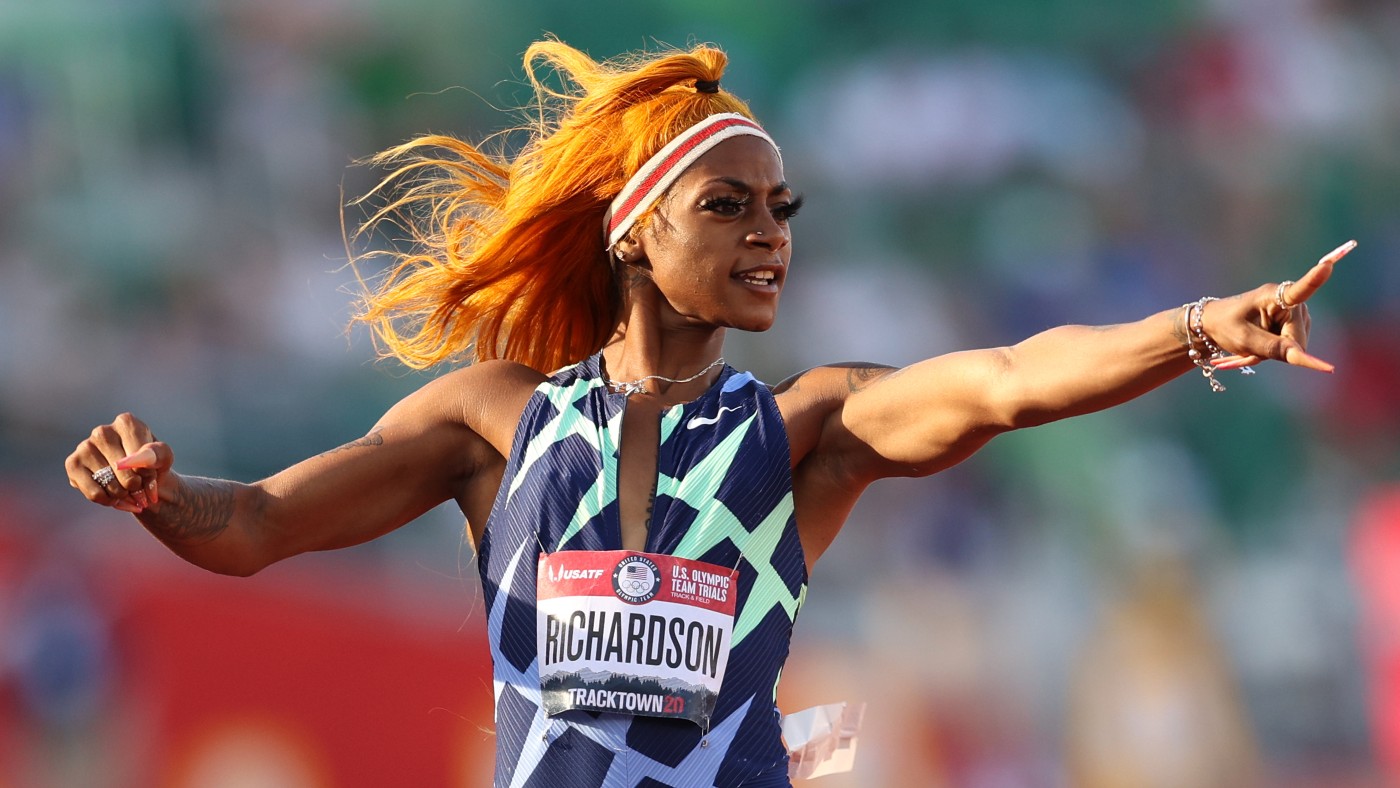 Doping in sport: should cannabis be on the list of banned substances?
Doping in sport: should cannabis be on the list of banned substances?feature World Anti-Doping Agency will launch a scientific review next year
-
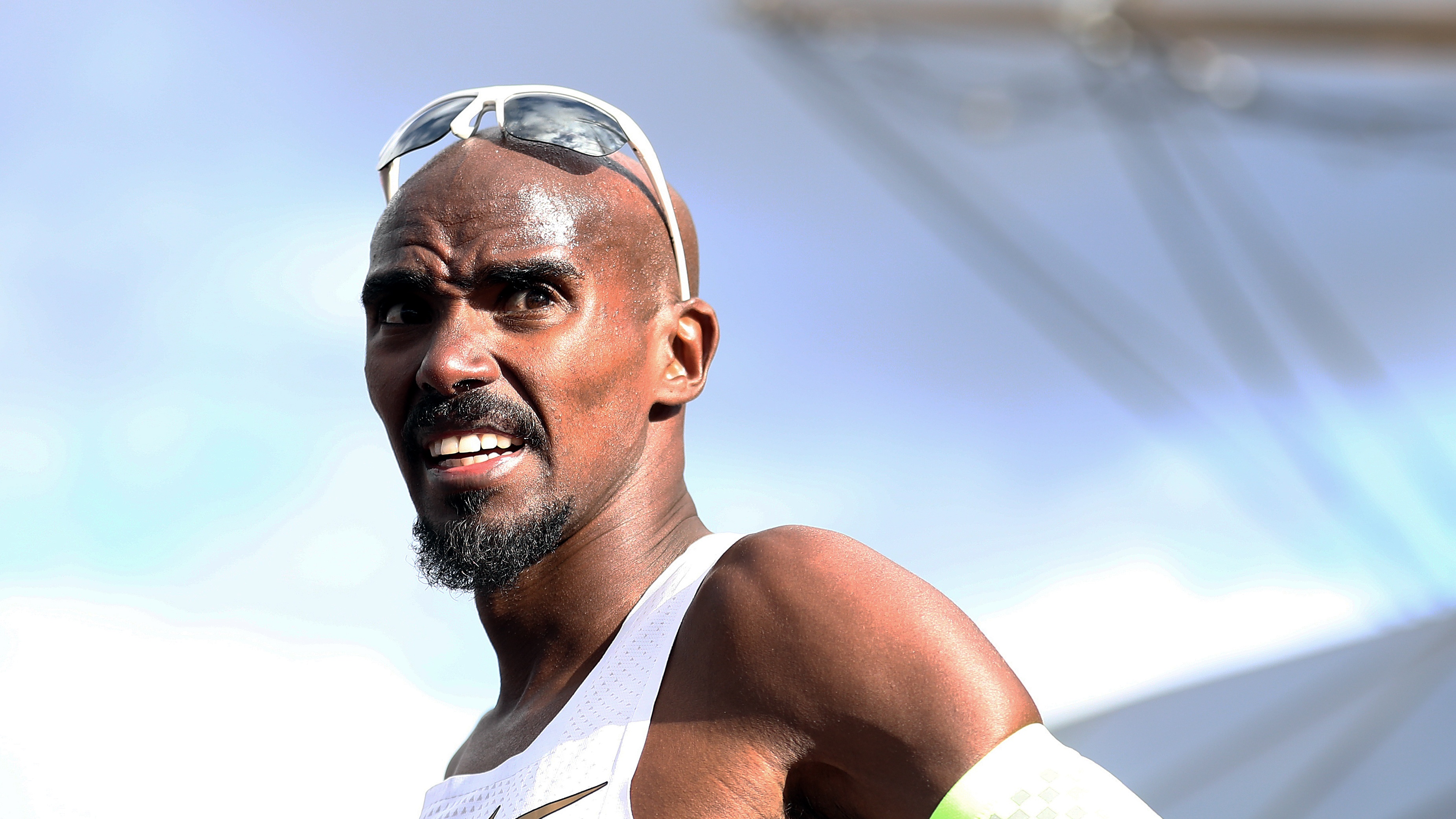 Mo Farah injection allegations: what is the reaction?
Mo Farah injection allegations: what is the reaction?Speed Read Panorama claims athlete changed story over performance-enhancing supplement
-
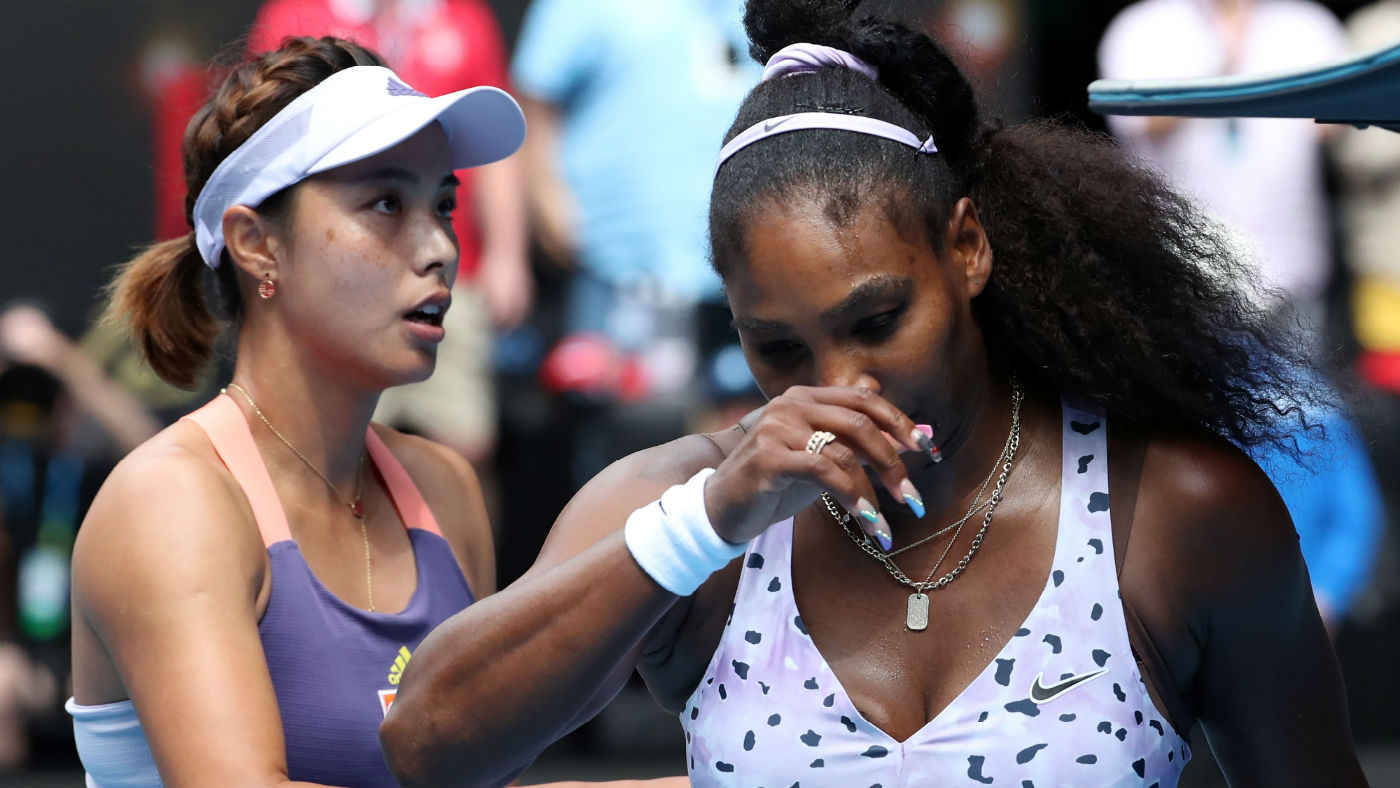 ‘It’s unprofessional - it’s not cool’: Serena Williams shocked at Australian Open
‘It’s unprofessional - it’s not cool’: Serena Williams shocked at Australian OpenIn Depth China’s Wang Qiang takes advantage of American’s mistakes in Melbourne
-
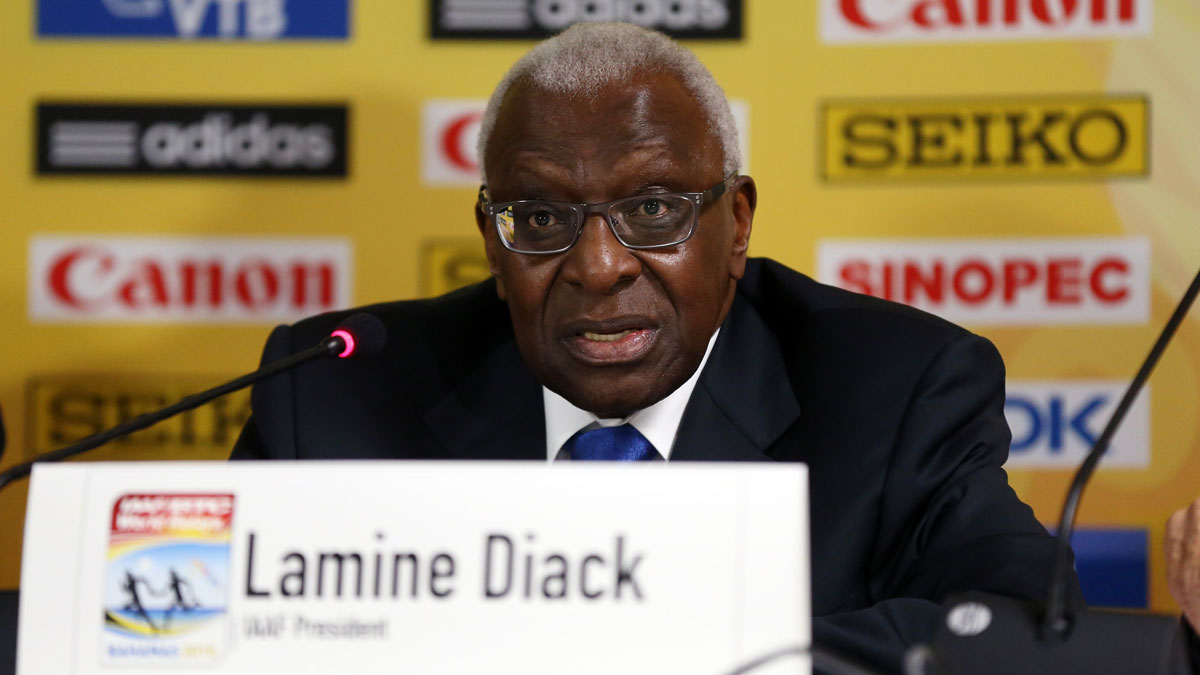 Sports shorts: disgraced athletics chief Lamine Diack goes on trial, Patrick Mahomes inspires Chiefs
Sports shorts: disgraced athletics chief Lamine Diack goes on trial, Patrick Mahomes inspires ChiefsDaily Briefing Ten things from the world of sport on Monday 13 January
-
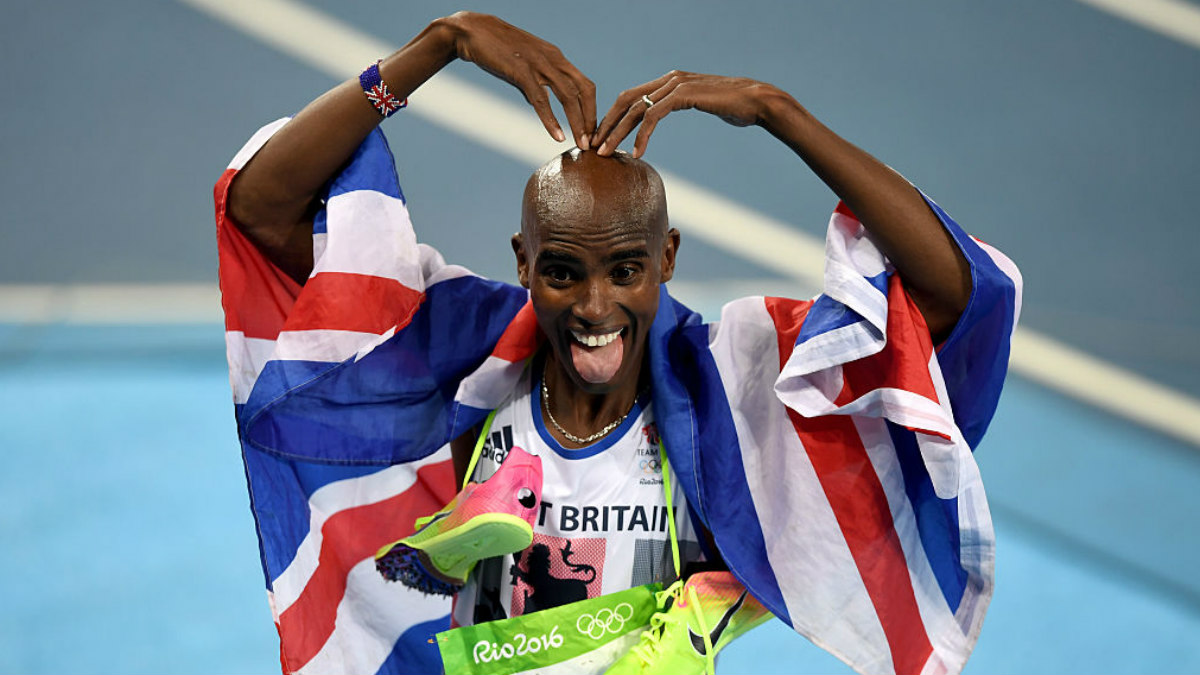 Sport shorts: Mo Farah to defend Olympic 10,000m title and Freddie Ljungberg takes temporary charge at Arsenal
Sport shorts: Mo Farah to defend Olympic 10,000m title and Freddie Ljungberg takes temporary charge at ArsenalSpeed Read Ten things from the world of sport on Friday 29 November